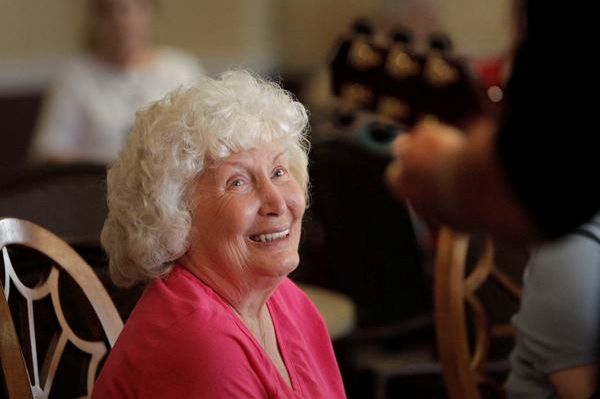Living with Dementia in Senior Living
Most people move to assisted living because they need support with daily living. Support can come in many forms. According to the Alzheimer’s Association, at least 50% of people in senior living have some form of dementia. Support for memory loss looks different for each person. People living with dementia can be successful living in a senior or assisted living apartment. Here are things to consider:
Keep a Routine
People often wait too long to move. Making a move to senior living earlier in the disease progression will be easier. While it might take a little longer, people with mild cognitive impairment can establish new routines. Use “landmarks” in the building to help navigate a new space. Hang something personal on the outside of the apartment door. Set the apartment up like your previous home or living space. Do activities of daily living in the same order and same time prior to the move. Moving is a big change. Keeping to a previous routine will help to establish a feeling of normalcy. And, moving sooner may allow your loved one to adjust well and live longer in assisted living than moving later.
Focus on Nutrition
Food is important. First off, maintaining a healthy diet keeps the body strong. Secondly, dehydration can cause confusion. Drinking fluids throughout the day is critical to a well- functioning brain and body. Stock the refrigerator with fruits, vegetables, water, soups, yogurt. Limit foods with high saturated fats and cholesterol. Take advantage of the dining program in senior living. Participating in one, two or three meals daily is optional and can be part of their routine. Assisted living communities serve balanced meals. Mealtimes are often scheduled. It is also a great place to meet friends.
Enjoy Socialization
Making friends and connecting with others is proven to be good for our health! Senior living communities offer scheduled, structured programs. Engaging with others is positive for anyone’s mental health. Games, trivia, and trips can be a fun way to build community.
Fitness
Keeping physically active contributes to general well-being. Good balance maintains a person’s ability to walk. Strength training increases and improves muscle mass. Living in a senior living community requires more steps than living in a home. Isn’t exercising more fun when you have someone to do it with?
Finances
Consider finances when making a move. Home care can be expensive and use up funds. Having at least two years of funds to pay for assisted living will give you more choices when you are looking for senior living. Moving sooner and establishing routines can be less money in the long run.
In conclusion, people with dementia can live and thrive in senior living. However, there may come a time when a smaller, more structured environment is needed. In July, we will focus on making the transition to memory care.

